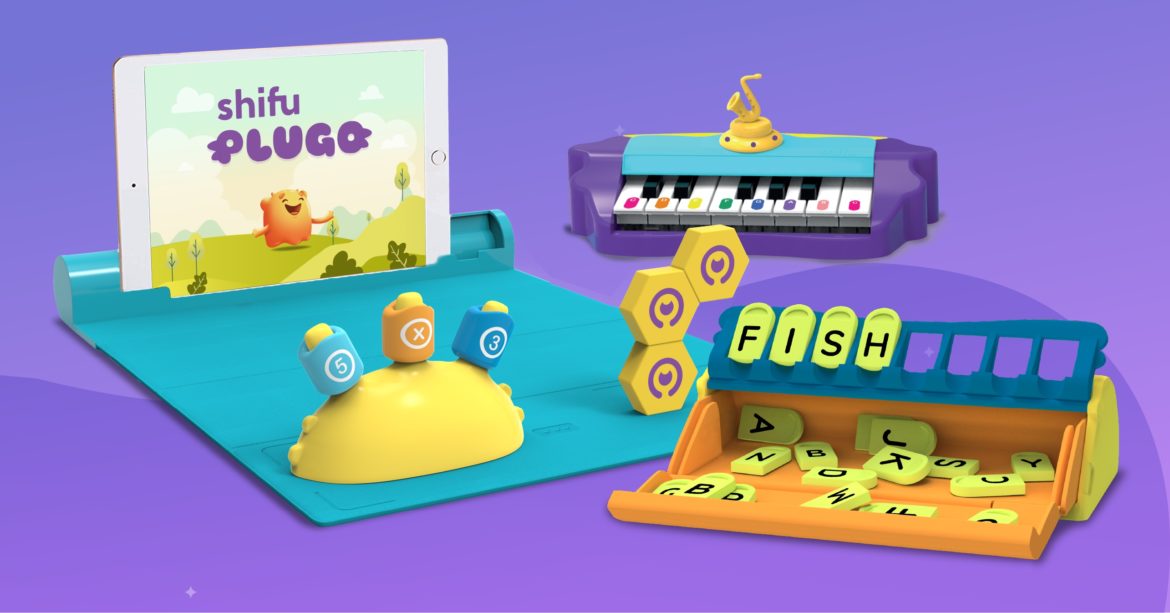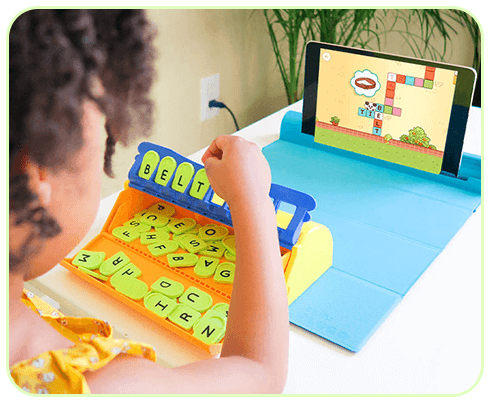TL;DR
PlayShifu offers ambitious STEM toys for kids, blending physical kits with tablet apps. While some products like Plugo Count and Slingshot are highly engaging and well-balanced, others suffer from steep learning curves, incomplete Swedish localization, and frustrating bugs. Orboot Earth requires English proficiency and can be technically fiddly. The high cost means careful consideration of your child's age and English skills is crucial. Discover which PlayShifu products hit the mark and which need more polish in our full review!
Today’s children are digital natives. Without set limits, they might dedicate every waking hour to tablet use. However, a tablet, unlike a traditional television, offers significant versatility. While passive consumption of content is an option, tablets can also facilitate development through engaging educational games. PlayShifu, founded in India by two fathers, aims to provide a more empathetic learning experience for children. The company has rapidly expanded to serve over 400,000 users. Their learning-focused toys are designed around STEM principles, encompassing science, technology, engineering, and mathematics – critical fields for the future, complemented by strong language skills.
PlayShifu products have been available internationally for some time and are now being introduced in the Nordic region, including localized versions with Swedish language support. This localization is still in progress, and some products lack complete Swedish speech integration. During testing, the program occasionally switched to other languages (primarily Dutch and English). We enlisted the help of toddler reviewers (ages 3 and 5) to evaluate products from the PLUGO and Orboot series. Plugo employs a magnetic mat and tablet holder system, offering various kits focused on areas such as piano skills, vocabulary development, and spatial reasoning, including basic physics concepts.
Plugo Letters
This kit focuses on spelling using letter tiles. Designed for a range of ages, from preschool to middle school, it presents challenges from simple 3-4 letter words and phonetics to more complex vocabulary. The game is currently only available in English. Given the significant linguistic differences, a Swedish version would require substantial redevelopment. As our toddler reviewers were too young for formal spelling and English language comprehension, a middle school student evaluated Letters. The student found the game acceptable, but questioned the necessity of physical tiles, suggesting that on-screen letter selection would be equally effective. This is a valid point to consider.
Plugo Tunes
This kit features a small, one-octave piano designed to introduce children to fundamental musical concepts, including pitch and notes. While initially engaging for toddlers, the game’s difficulty progresses rapidly, even at the preschool level. It requires children to develop their aural skills (listening to and repeating tones) and memorize increasingly complex note sequences. A more accessible, introductory mode for younger children would greatly enhance Plugo Tunes’ appeal. Swedish language support is present but exhibits frequent errors, switching to other languages. Furthermore, one of the included mini-games, involving monster defense, exhibited intermittent functionality; it was sometimes impossible to initiate or resume gameplay.
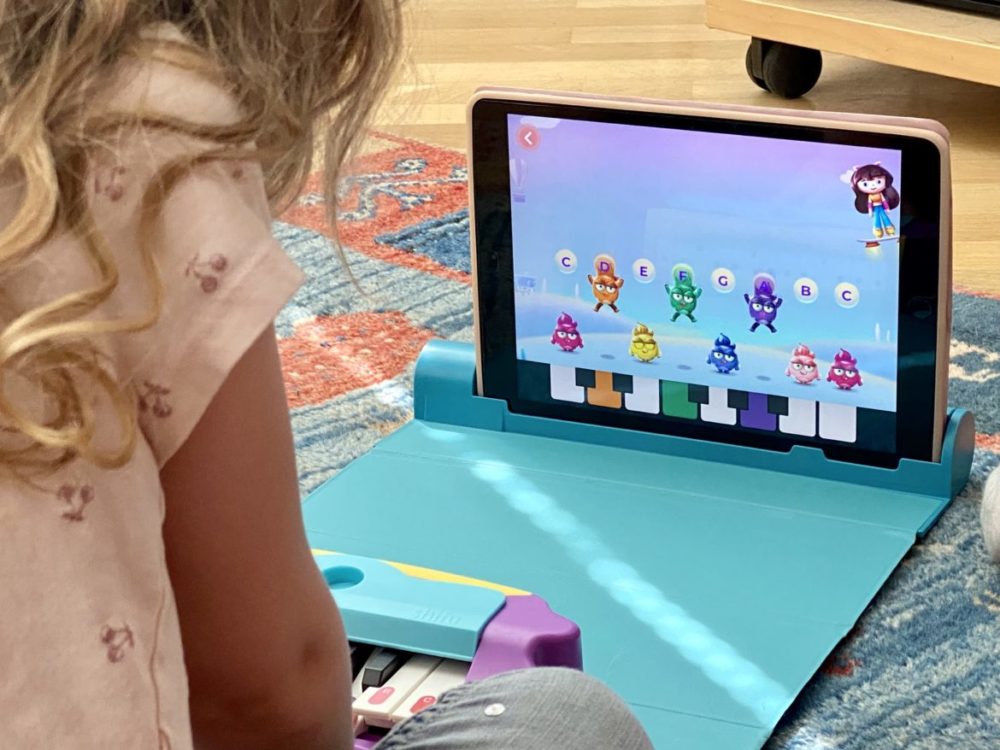
Plugo Count
This kit utilizes a yellow alien figure onto which children attach number and arithmetic symbol tiles to solve mathematical problems. The five-year-old reviewer found this to be a particular favorite. The game offers sufficient adjustability to accommodate children beginning to learn numbers, simple addition, and subtraction, while also extending to more advanced concepts like multiplication, division, and equations. The game incorporates a space journey theme, presenting math challenges such as counting asteroids and identifying the largest or smallest number in a set. Challenges with sequences and monster companions are also included. Swedish language support is approximately 90% complete. This educational game would be a valuable addition to school curricula. Highly recommended.
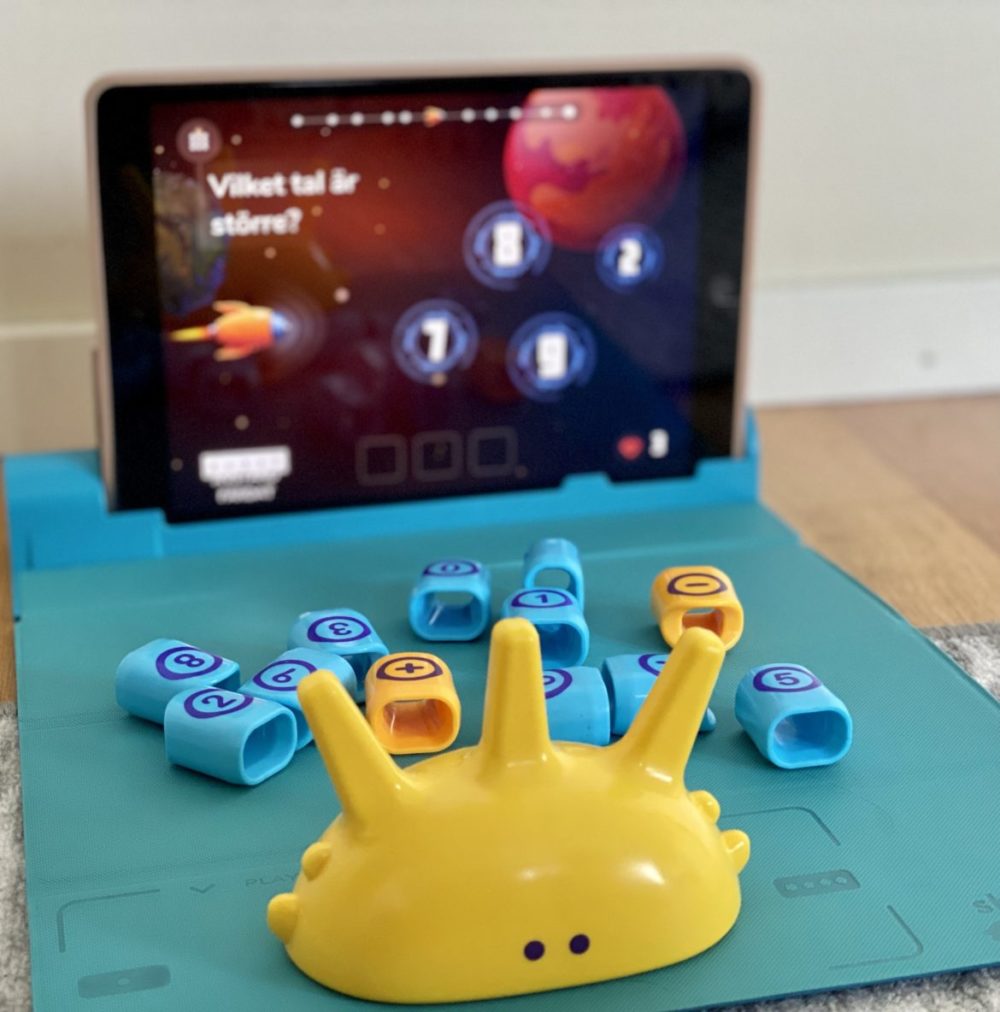
Plugo Link
This building game employs magnetic blocks to solve puzzles and create figures displayed on the screen. Marketed for children aged 5-10, we were unable to fully evaluate Plugo Link due to persistent technical issues. Despite multiple re-installations, the game stalled during the final stage of the calibration process. The limited Swedish language elements that were accessible appeared functional. This is the only positive observation we can offer regarding Plugo Link.
Plugo Slingshot
This is a catapult simulation game. Those familiar with mobile games like Paper Toss 2.0 will find a similar concept here. The objective is to develop fine motor skills and spatial reasoning by operating a virtual catapult/slingshot to launch projectiles at on-screen targets. This was well-received, even by the youngest reviewer, who quickly improved their accuracy. The game requires no prior knowledge. Regrettably, one of the mini-games was rendered unplayable by a bug that prevented the catapult from responding (Tizi Wizi with the young magician). This is a significant drawback in a new product. Despite this issue, Plugo Slingshot presents a generally effective and enjoyable means of enhancing fine motor skills. The game is entirely in English, but the tasks are relatively intuitive, even for younger children.
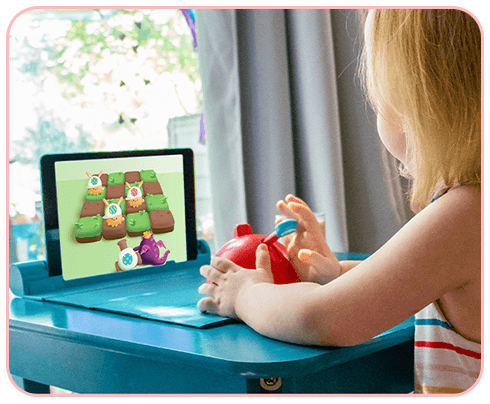
PlayShifu Orboot
PlayShifu’s Orboot series comprises interactive globes that utilize augmented reality (AR) through a tablet’s camera. Orboot Earth focuses on our planet, enabling users to explore countries, animals, and landmarks worldwide. It presents information about facts, flags, cuisines, and other geographical aspects. A game emphasizing ecological balance requires players to determine the elements needed to restore equilibrium in various scenarios – for example, increased vegetation, more grazing animals, fewer predators, or improved soil quality. Orboot Earth includes a passport for collecting stamps and stickers. This is a potentially valuable educational tool with engaging games, primarily intended for older children with English language proficiency. However, the technical implementation has some shortcomings. The iPad camera can occasionally struggle to focus on the AR markers, and the simultaneous actions of holding the globe, aiming the camera, and interacting with the screen require some dexterity. The included quiz can be challenging even for adults – for example, do you know which substance gives flamingos their pink coloration? (While multiple choice, the question is still advanced for typical school levels in Sweden).
The Orboot series also offers globes dedicated to the age of dinosaurs, a popular topic for many children, and the planet Mars for aspiring astronauts.
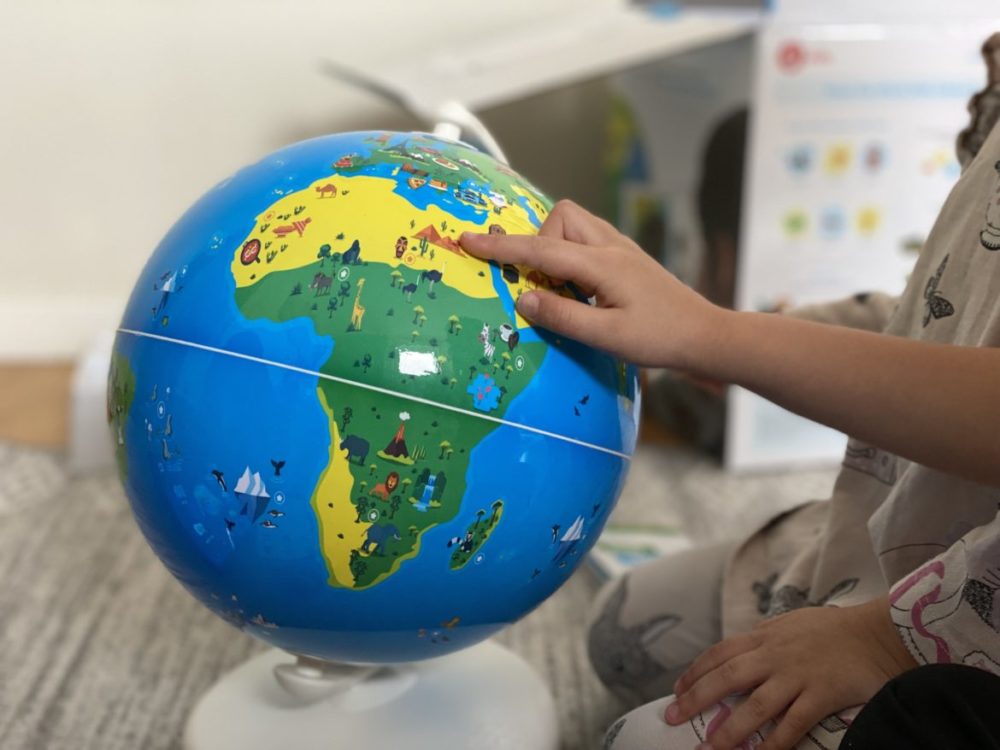
Summary
Overall, PlayShifu’s products demonstrate considerable ambition and ingenuity. However, several products appear to have been released prematurely, exhibiting disruptive bugs and incomplete or inaccurate Swedish translations. Educational expectations in Asia are often higher than in Western countries. For instance, in Singapore, students are expected to possess basic mathematical skills and fluency in three languages (including Chinese) upon entering school. This disparity is reflected in the difficulty level of some Plugo products, which exhibit a steep learning curve that may prove challenging for the average preschool child in Sweden. However, certain games, such as Plugo Count and Slingshot, offer a well-balanced and adaptable experience for children aged three and older. Generally, children with some prior exposure to mathematics and English (typically introduced in preschool classes) will derive the most benefit from these products (ages 6 and up).
Technically, the products performed satisfactorily on iOS devices during testing. However, as previously noted, the Swedish localization is inconsistent or absent, and the presence of critical bugs suggests inadequate testing. Given the relatively high cost of these products (approximately 600 kronor each), parents should carefully evaluate their child’s current skill level to ensure optimal engagement. As previously stated, with the possible exceptions of Slingshot and Count, most products may be too advanced for the youngest children. A more playful introductory level, emphasizing learning through play rather than rigorous instruction, would be beneficial. Few children are enthusiastic about additional schoolwork during their leisure time. There is a risk that these products will be abandoned if children do not find them appealing and engaging.
In conclusion, while PlayShifu’s products demonstrate a high level of ambition in promoting learning, the technical execution and localization (both linguistic and pedagogical) require improvement. The collective assessment from our toddler reviewers and parental perspectives is moderately positive. However, the current state of the products does not warrant a strong recommendation across the board, with the exception of specific kits. For older children proficient in English and seeking intellectual challenges, these products may offer greater value. It is advisable to wait for PlayShifu to address the identified bugs and refine the Swedish adaptation before making a purchase. This is particularly important for products designed to be used independently by children, even with adult supervision.
Footnote: PlayShifu products require an iPad from 2017 or later, or an Android device from 2015 onwards with a minimum of 2GB of RAM. Testing was conducted exclusively on iOS devices. While the products are compatible with iPhones, a modern, full-size iPad is recommended for optimal performance.
